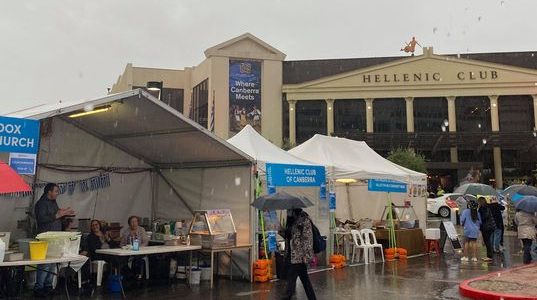Facebook sex-rating groups spread through cyberspace
THE number of humiliating ‘root rater’ groups being used to rate sexual performances via social networking websites has exploded, MELANIE CATANZARITI reports.
When did these groups emerge?
There has been an explosion in gossip websites across Australia in recent times as users affiliated through schools and suburbs have been posting sexually slanderous comments on social networking sites.
‘Root rater’ groups, as they are called, were discovered in June 2011 in Queensland and they are rapidly spreading to other parts of Australia. These groups are popular among young males and operate much like Facebook creator Mark Zuckerberg’s initial college version of the website, where rating women was the norm.
This online trend, involving thousands of Australian teenagers, uses social networking sites to rate and detail the sexual performances of its victims. Users of the groups are rating their sexual encounters on a scale from 1 to 10, providing explicit comments regarding the experience and the name and details of their targeted partner.
Ratings and comments are submitted, often anonymously, to page administrators who then post them to a Facebook wall for the public to see. The groups violate Facebook’s terms of service and victims have petitioned the site for their removal. However, Facebook has been known to respond slowly in such instances.
What are the impacts of these groups?
Naturally, victims are humiliated and outraged when they discover they have been mentioned on a ‘root rater’ group.
Cyber experts say the groups are not only offensive but can amount to bullying.
The severity of this issue has been highlighted by former Victorian police officer and now Cyber Safety Solutions consultant Susan McLean. She says the sites are growing rapidly and doing immense damage to the reputation of the teenagers who are identified.
“These groups are in every capital city, in rural communities and remote communities,” she said. “They are particularly hurtful and the impact on the vulnerable young people mentioned within the groups is indescribable. They are vulgar and could potentially break a community.
“People can be ostracised as a result of these groups and young girls, in particular, could become a target for unwanted sexual advances and attention.”
Is Facebook to blame?
Victims are looking to the authorities and Facebook to quickly get the groups shut down.
McLean believes, however, that the host website is not responsible for such groups being created.
“It is not Facebook’s fault that someone has used their application to do something wrong and immoral,” she said “I think it is important for the public not to demonise particular types of technology or websites for these mishaps. Even though there are so many ‘root rater’ groups out now, I would like to see Facebook basically being on top of things and getting rid of the all the sites. I don’t think it would be hard.”
Are any laws being broken?
Every state has its own set of laws in relation to cyber bullying and Commonwealth law applies in all states and territories.
Additionally, underage persons are at a risk of being mentioned on the ‘root rater’ groups.
Former Police Inspecto Michael Toohey, believes the group creators should be charged criminally if they transmit any sexual material of an underage person.
“This is a very serious issue,” he said. “Creating or participating in an online website of sexual encounters crosses the line on so many levels. The people contributing to these groups need to consider the consequences of their actions and they could be held criminally and civilly liable. . . . Finding the administrators of these groups may take quite a bit of investigative work by the authorities but it would definitely be worth it.”
How can people avoid this exploitation?
No one is anonymous online and although it would be a complex investigation, Police have access to Facebook. They can serve a warrant on Facebook and they can actually be provided with the information as to the identity of the person who set the account up.
“Anything criminal in nature surrounding the internet can and should be reported to the police,” Toohey said. “People should report the ‘root rater’ Facebook groups even if the creator is unknown. The authorities could certainly access the information and take appropriate action.”
Experts believe it is important to raise awareness about the abuse occurring within these social networking sites and the repercussions of contributing to them in order to avoid becoming a victim.
McLean said, “Many of the people participating in these groups are adolescents who don’t have any concept of the consequences of these actions. Therefore, schools and parents need to be proactive about educating children to do the right thing.
“If victims aren’t willing to de-activate their accounts, they should report any offensive content to Facebook officials. Regardless of whether they are the one being targeted, it is their responsibility as a Facebook user to alert the website of the abuse. If it is something that is ongoing, they can take the matter to the police because legally it is something that the authorities should deal with.”
Facebook Inc. has since announced in a press release on the website, that it has redesigned its privacy features and controls.





Be the first to comment!